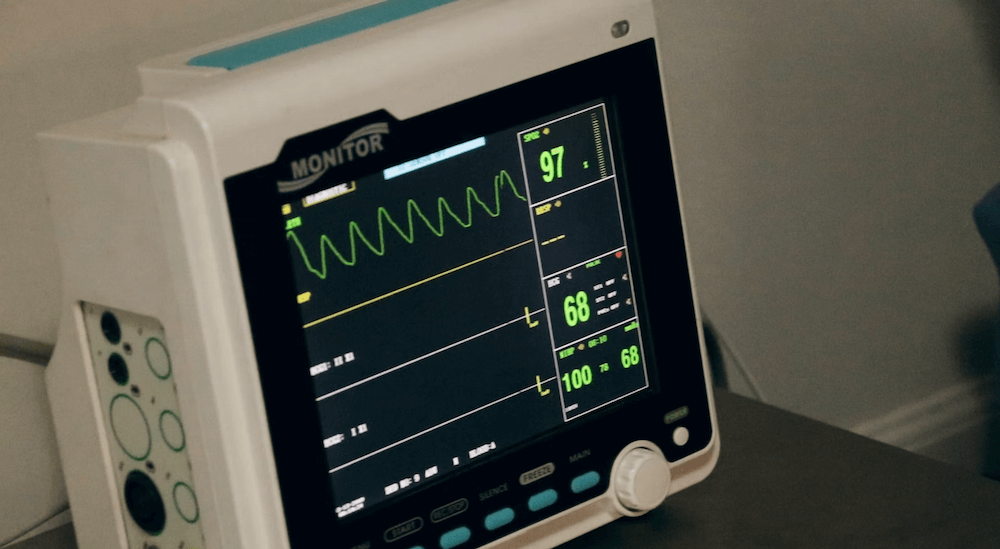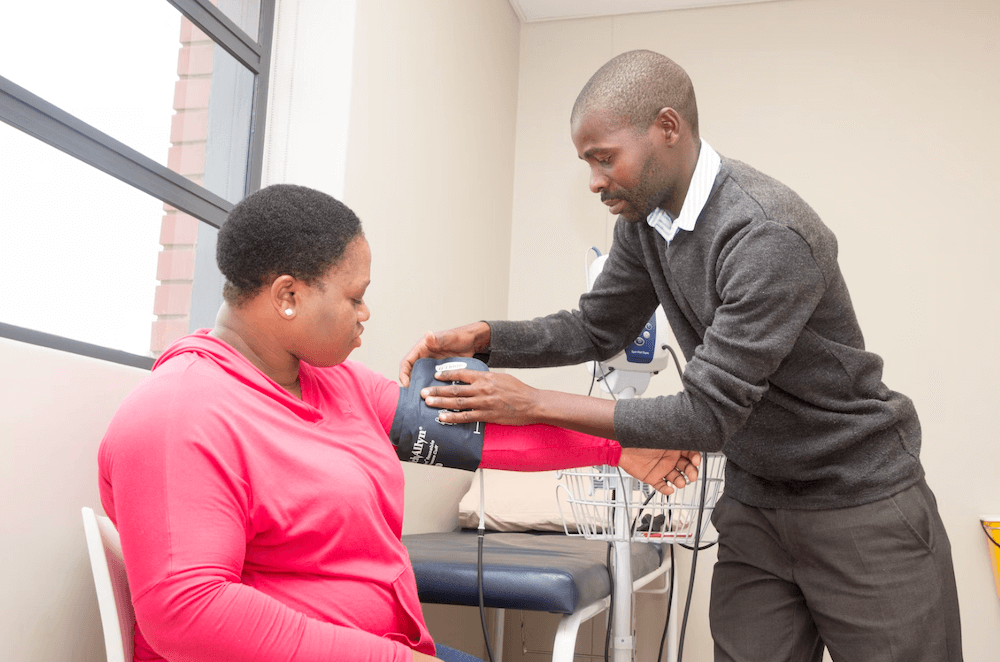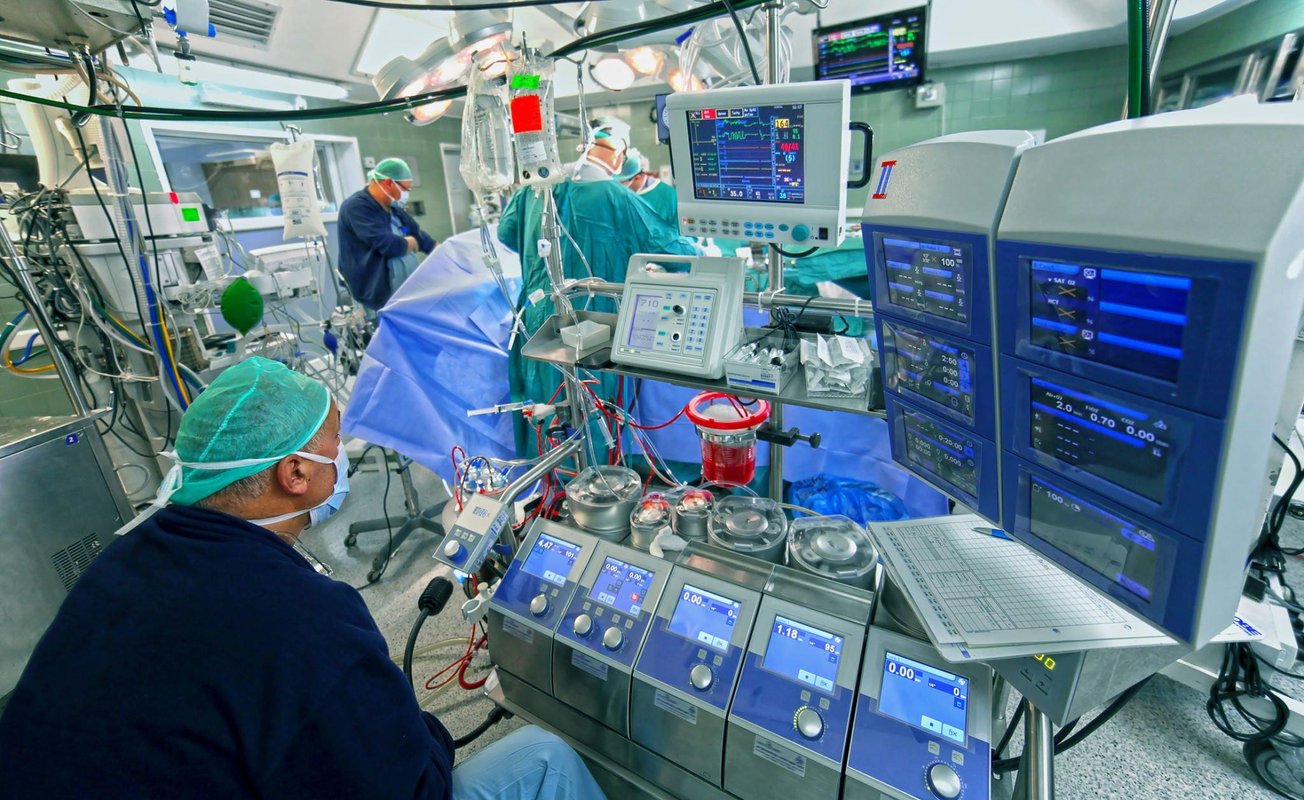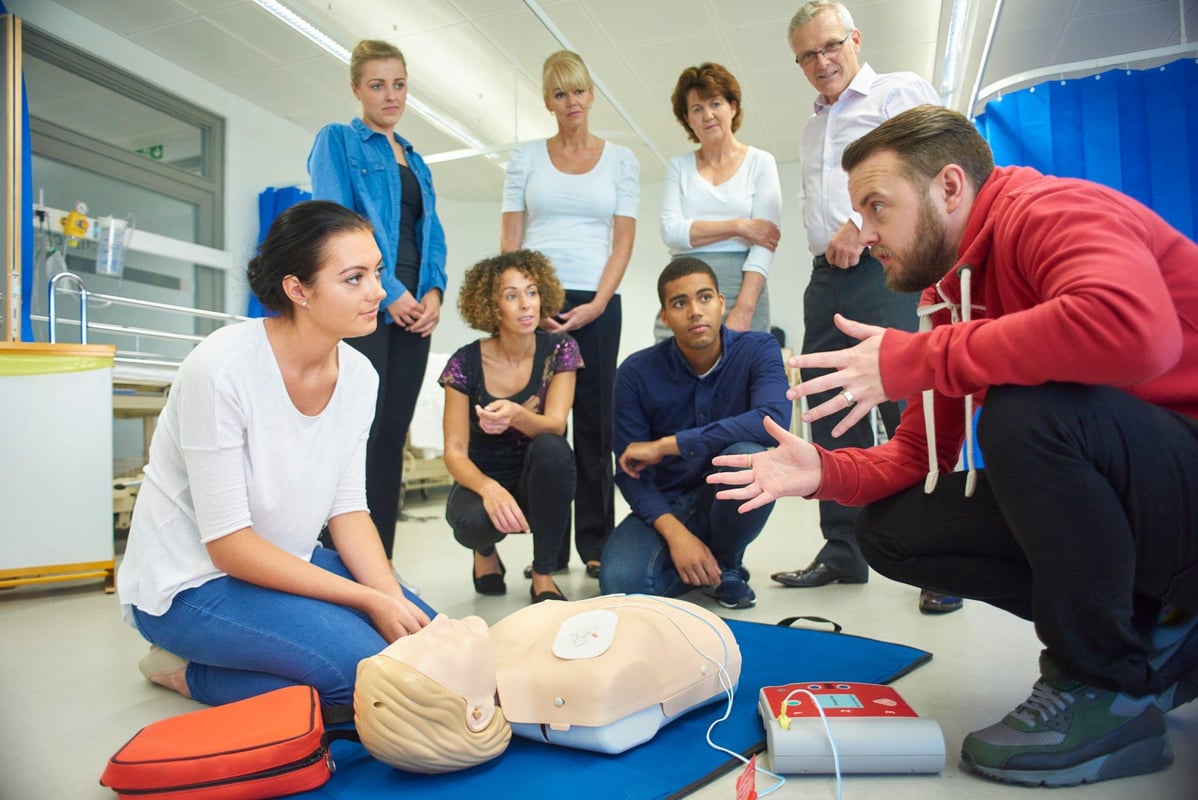Chicago School of Phlebotomy

Classes from CSP
Clinical Laboratory Assisting

What happens between specimen collection and patient diagnosis? The Clinical Laboratory Assistant (CLA) handles, prepares, and assists with the testing of specimens to ensure accurate test results and offer clinicians the ultimate diagnostic tool for treating patients. The course meets twice a week for six weeks and offers students the opportunity to get hands on experience with relevant lab equipment, learn the basics of specimen collection, and master the knowledge required by the demanding and engaging field of laboratory testing. Skills and content include: Clinical Safety and Precautions, Blood and Bodily Fluid Safety, Laboratory Equipment, Accessioning and Handling, Specimen Analysis, Phlebotomy and Specimen Collection, Common Tests and Test Preparation.
Advanced Phlebotomy Techniques Workshop

This one-day workshop teaches the extended skills required to perform more difficult draws or adapt to challenging veins in certain patient populations. Strategies for adapting to damaged veins, such as those in intravenous drug users or chemotherapy patients, as well as fragile or small veins, like those encountered in geriatric and pediatric patients will be discussed and demonstrated in a hands-on lab setting. After completing the workshop, students will be issued an Advanced Phlebotomy Techniques workshop certificate to bolster their resume and qualifications.
EKG Technician

The field of cardiology is a challenging, high-demand career field where technicians have the opportunity to work with patients and medical teams to assist in the diagnosis and treatment of heart conditions. EKG Technicians play a key role in collecting the diagnostic information that physicians depend on to provide patients with the correct treatment plans. Because these diagnostics are so key, Chicago School of Phlebotomy has established a rigorous curriculum designed to give our graduates a comprehensive training in:
- Cardiac Anatomy
- Cardiac Physiology
- Electrical Conduction in the Heart
- 12-Lead EKG Administration
- Identification and Interpretation of EKG Tracings
- Holter and Telemetry Monitoring
- Patient Care and Advising
The EKG Technician program at Chicago School of Phlebotomy was developed by a physician to ensure the highest quality information. Our program stands above the rest because of its attention to the knowledge behind the science of the heart in addition to the technical expertise of performing diagnostics.
Accelerated Phlebotomy

This is a 4-week phlebotomy course that provides the experienced student with additional skills and training in order to succeed in the healthcare field as a phlebotomist or other healthcare professional. This course is intended to compliment the student's current medical training and/or experience. This course contains lecture, discussion, and practical instruction. The student must demonstrate proficient phlebotomy skills and knowledge equivalent to the Phlebotomy program but in a shorter timeframe. This class is intended for students with prior medical training, related education, or clinical experience. Call our office at (847) 886-9873 to see if you are eligible. If you are not eligible or would appreciate more in depth coverage of the field, please look into our Phlebotomy program.
Our instructors will guide you as you learn a variety of types of blood drawing techniques, safety standards, basic anatomy and physiology.
7-Week Phlebotomy

All of our phlebotomy training classes are comprehensive and emphasizes a “hands-on” method – each student will draw blood at least once in every class. These draws will be performed with supervision on other class members. Our instructors will guide you as you learn a variety of phlebotomy techniques. In addition, you will learn the “tricks of the trade” that will help with special patients and difficult draws. Our Phlebotomy Program provides the student with skills and training in order to succeed as a phlebotomist. This course contains 6-weeks of lecture, discussion, and practical instruction in the lab, followed by a 40-hour clinical externship at a local patient service center, hospital or clinic. The hours of the externship are site-specific but are usually done over the space of one week, Monday through Friday. This is a larger time commitment but the externship is a valuable clinical experience. Please contact our office if you have any questions about course requirements or time commitments.
Clinical Medical Assisting

Clinical Medical Assisting Program at Chicago School of Phlebotomy
Embark on a rewarding healthcare career with the comprehensive Clinical Medical Assisting program at Chicago School of Phlebotomy. This intensive, in-person training is designed to equip you with essential skills for diverse clinical responsibilities, preparing you for immediate entry into the dynamic medical field. Gain hands-on expertise in vital signs, medical histories, phlebotomy, CLIA-waived testing, and wound care, ensuring you are thoroughly prepared for the Certified Clinical Medical Assistant (CCMA) exam and a successful future.
Program Details:
- Cost: 2300 USD (optional externship for an additional $300)
- Duration: 11 weeks
- Schedule: Students meet twice a week for lecture and hands-on labs (in-person modality)
- Prerequisites: 18 years of age or older, high school diploma, GED, or equivalent
- Accreditations: National Healthcareer Association (NHA)
- Career Outcomes: Prepares students for the Certified Clinical Medical Assistant (CCMA) exam, leading to diverse clinical responsibilities and opportunities in the medical field.
IV/Infusion Workshop

This workshop meets four times (two weekends in a row) for three hours each session. Full attendance and participation in all 12 instructional hours is required for successful completion. In the workshop, students will learn to place and manage intravenous lines and infusion kits, and will also be taught how to calculate and administer medication intravenously.
Advanced Wound Care and Suturing Workshop

In this one-day workshop, students will learn to place and remove sutures and staples, as well as additional advanced wound care techniques such as JP Drain management and hands-on wet-to-dry dressing use. After completion, students will receive a workshop certificate in Advanced Wound Care and Suture.
Paramedical Examiner and Health/Wellness Screener Workshop

Sometimes called a “Field Examiner” or “Mobile Phlebotomist,” this exciting career is performing physical exams on clients for insurance companies. The exams are done at client’s home or business. Duties include taking a detailed medical history, gathering and recording vital signs, venipuncture, and performing a resting EKG. As an independent contractor, you set your own schedule and can even make your own appointments with clients directly. This course consists of: After completing the workshop, students will be issued a workshop certificate to bolster their resume and qualifications.
In person Phlebotomy Classes

Chicago School of Phlebotomy Program
The Chicago School of Phlebotomy offers a comprehensive 7-week in-person program designed to transform aspiring healthcare professionals into certified phlebotomy technicians. This hands-on training emphasizes practical skills, professionalism, and patient care through supervised blood draws in every class and a 40-hour clinical externship at local healthcare facilities. Graduates are well-prepared for a strong job market with projected growth, equipped to enhance their career competitiveness by optionally sitting for the national Certified Phlebotomy Technician (CPT) exam.
Program Details:
- Cost: The total cost is $900, which includes a $50 registration fee, $500 tuition, $150 laboratory fee, $100 for books and supplies, and a $100 externship fee. Flexible payment plans are available with no extra cost.
- Duration: 7 weeks, including 6 weeks of lecture and lab instruction, followed by a 1-week clinical externship.
- Schedule: In-person, hands-on training with supervised blood draws and a clinical externship at local healthcare facilities.
- Prerequisites: 18 Years of Age or Older, High School Diploma, GED, or International High School Diploma Equivalency.
- Accreditations: Approved by the Illinois Board of Higher Education. Students have the option to sit for the National Healthcareer Association (NHA) Certified Phlebotomy Technician (CPT) exam.
- Career Outcomes: Strong job outlook with a 25% growth rate projected from 2014 to 2024 for phlebotomists. The program offers career assistance services and enhances job market competitiveness by preparing students for national certification.
Clinical Medical Assisting Certification

The Chicago School of Phlebotomy is a well-respected establishment, renowned for its quality medical assistant certification programs. The instruction provided is comprehensive, ensuring all students gain a detailed understanding of the intricacies inherent to the medical field. Additionally, the hands-on approach offers valuable practical experience, augmenting the theoretical learning. The lessons are taught by experienced professionals who consistently illustrate their expertise. This holistic training approach encourages the students to develop essential skills required in their future profession effectively. Each participant is confident, capable, and thoroughly prepared to handle all routines and emergencies related to their role upon completion.
In person Electrocardiogram (ECG/EKG) Classes

Chicago School of Phlebotomy remains nationally recognized as an esteemed institution offering meticulous training in the medical field. As we hone into the intricacies of an Electrocardiogram (ECG), a critical diagnostic tool in heart-related anomalies, the significance of clarity gets amplified. Decoding the data imprinted in those lines require a keen eye and a solid knowledge base, as these signals reflect the heartbeat's functioning. Pulsations arise due to the electrical impulses generated, moving in a set pattern within the heart. This performance gets captured and presented in the form of varying peak-trough patterns on an ECG. Extracting these out, understanding each nuance, and transforming them into decipherable medical data is no less than art. This artistry is something we strive to impart at our Chicago School of Phlebotomy throughout our in-depth Electrocardiogram module, advocating the importance of precision and clarity in this life-saving diagnostic procedure.
About school
Chicago School of Phlebotomy
Located in Naperville, IL, and serving the Chicagoland area, the Chicago School of Phlebotomy is an educational institution specializing in allied health training with a strong focus on phlebotomy. It offers a comprehensive 7-week in-person program emphasizing hands-on training with supervised blood draws in every class and a 40-hour clinical externship at local healthcare facilities. The curriculum covers essential skills like venipuncture, safety protocols, medical terminology, and professionalism. Students benefit from flexible payment plans, career assistance services, and the option to sit for a national Certified Phlebotomy Technician (CPT) exam, enhancing their job market competitiveness.
Highlights:
- Comprehensive 7-week phlebotomy program
- Hands-on training with supervised blood draws
- 40-hour clinical externship
- Flexible payment plans
- Career assistance services
- Option for national CPT exam
In the Naperville, IL area
932 North Wright Street, Naperville, IL 60563